The Great Depression & WW II
Life on the Homefront
During World War II, many Tennesseans left to fight in Europe or the Pacific. However, those who remained had important jobs to do for the war effort. The Tennessee homefront was filled with people working to help America win the war.
For many Tennesseans, the most difficult part of the war was their constant concern for loved ones serving in the military.
Families expressed their pride for servicemen and women by hanging blue star flags in the front window of their homes. This meant they had a family member in the armed services. No family wanted to have a flag with a gold star. This meant they had a family member who had been killed in the war.
Tennessee was a busy place during the war. Civilians found lots of ways to help win the war through everyday activities. They conserved resources, like metal, needed to fight the war. They bought war bonds to help the federal government pay for the equipment soldiers needed. They also planted “victory gardens” to grow their own vegetables.
With many troops stationed in the state for training, Tennessee families opened their homes to many lonely soldiers from other states.
Picture Credits:
- Mrs. Thomas Harvey of Tennessee listens to war news on the radio in 1945 as she holds a photograph of her son, Lt. Col. Robert Harvey. Photographs of her three other sons serving in the armed forces are on the top of the radio. They are Staff Sgt. Benson Harvey, Chief Petty Officer Frank Harvey, and Chief Warrant Officer James Harvey. Photograph by John Malone, courtesy of The Tennessean.
- A woman, shopping at the canned fruit shelves, calculates the effect on her ration book of 12 points for a 16 cent can of fruit. National Archives
- States lowered the speed limits on some roads to help save gas and wear on tires. This sign declares it the "Victory speed." Library of Congress
- A woman brings her saved grease to the local butcher. The grease had to been strained through a sieve and poured into a wide-mouth jar or can. Butchers displaying the poster shown here will pay for fat and then sell it to rendering plants. Library of Congress
- Sometimes life went on the same as before the war. Here food is spread out on a table for the Welch Chapel Church picnic in Sequatchie County. Tennessee Library and Archives
- Harry Nelson of San Francisco shows his daughter and her fellow Girl Scouts how to plant seedlings in their Victory Garden. National Archives
The Great Depression & WW II >> World War II >> Life on the Homefront >>
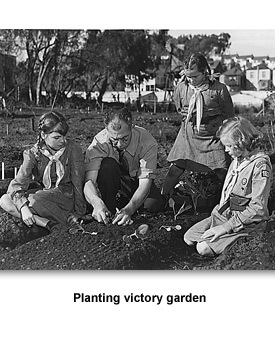
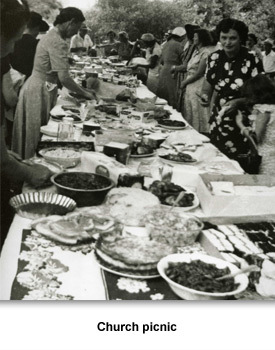
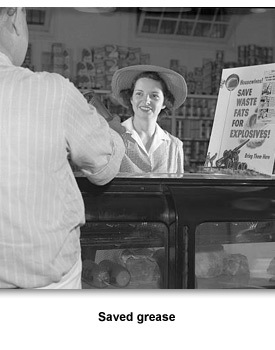
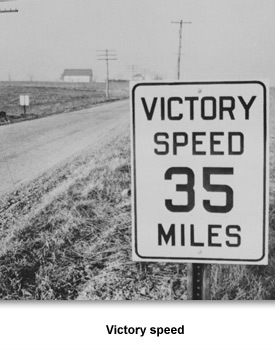
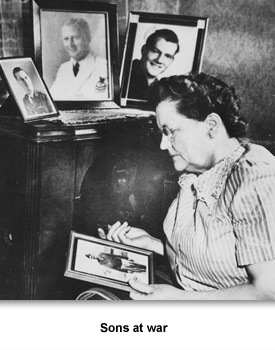
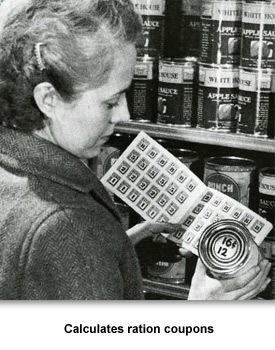
 Sponsored by: National Endowment for the Humanities
Sponsored by: National Endowment for the Humanities